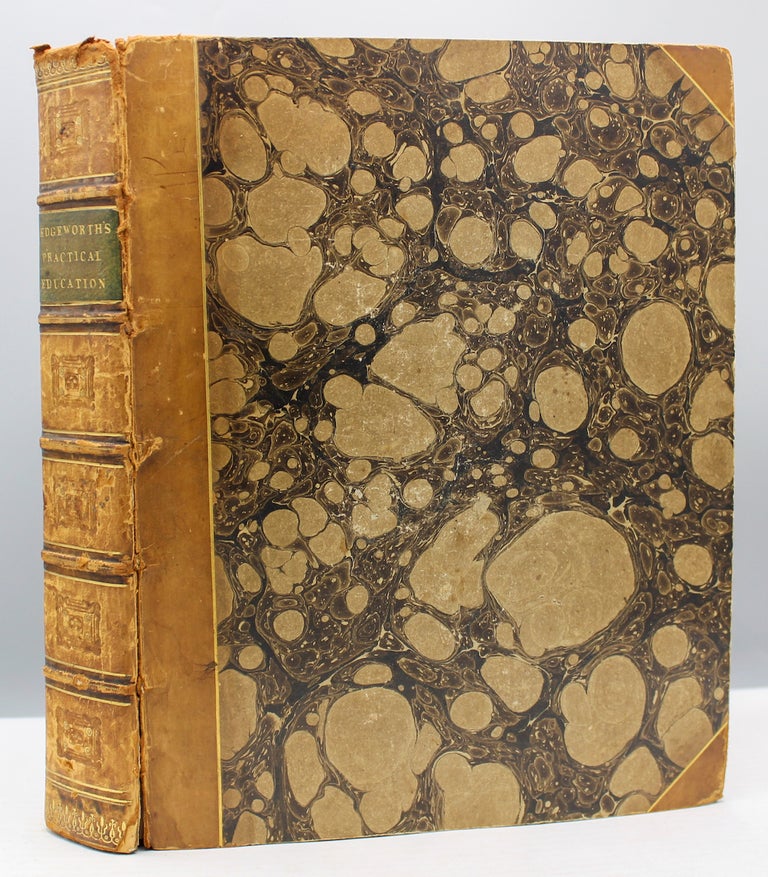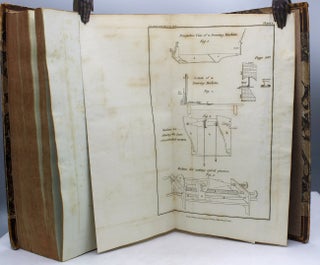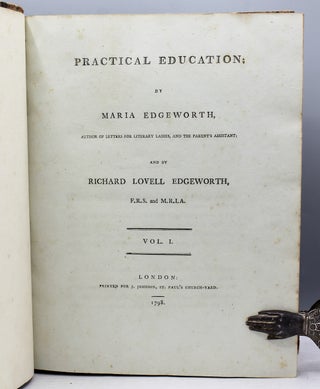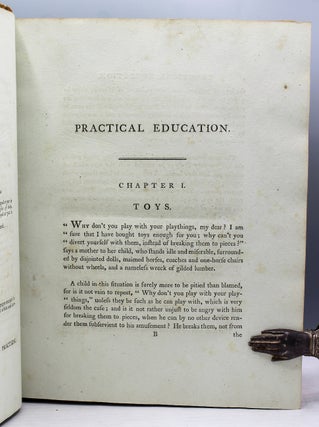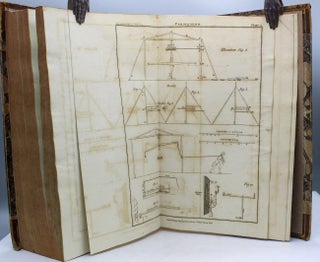Practical Education.
London: Printed for J. Johnson... 1798. First edition of Maria Edgeworth’s first publication, produced with her Lunar Society father. Muirhead calls this “the most important work on general pedagogy to appear in this country between…Locke’s Thoughts …and Herbert Spencer’s Essay in 1861” (The English School, 57). The Edgeworths were the preëminent disciples of the educational theories of Rousseau in England. Illustrated with one diagram and two folding plates. Both joints starting to crack, but sound. Itermittent very light foxing, slight offsetting to plates. Early armorial bookplate, ink signature dated 1872 on a preliminary blank. A very good copy. Possibly a large paper copy, with wide margins. Slightly later half calf over marbled boards, gilt spine, tooled in compartments, olive morocco label, edges stained red, brown paper endpages. Binding extremities lightly rubbed with slight wear to boards. Two volumes in one, thick quarto. pp. [iii]-x, [2], 385, [1]; , [2], 387-775, [1, blank], [16, index], [2, corrections] pp. Wanting the half-titles. Item #16608
“In the preface to Practical Education the authors stated that they chose the title in order to emphasize their entire reliance upon practice and experience. They considered that, to make progress in the art of education, it should be reduced to an experimental science...The chapters on science are specimens of the manner in which they thought young children should be taught…" During Maria Edgeworth’s (1768-1849) and Richard Lovell Edgeworth’s (1744-1817) lifetimes, “…education…was limited in scope, with long lessons and parrot-fashion learning without well-arranged associations of subject…It is not possible to apportion credit between the ‘partner’ authors, father and daughter, but
the lively chapters ‘Toys’ and ‘Tasks’ well display the attraction of their joint work. Broadly, Richard Edgeworth gave very clear instructions on the teaching of the more down-to-earth subjects (such as reading and arithmetic), while Maria dealt with the less technical (including ‘Taste and imagination’ and ‘Memory and invention’)…The most spirited section demonstrates Edgeworth's experimental system, with selections from the children's questions and answers, derived from the family ‘registers’. These ‘conversation lessons’ show Maria Edgeworth's skill as a teacher, for example when the children are led to reinvent a component of a steam engine by asking them suitable questions” (Oxford DNB).
Slade 3A.
Price: $2,000.00



